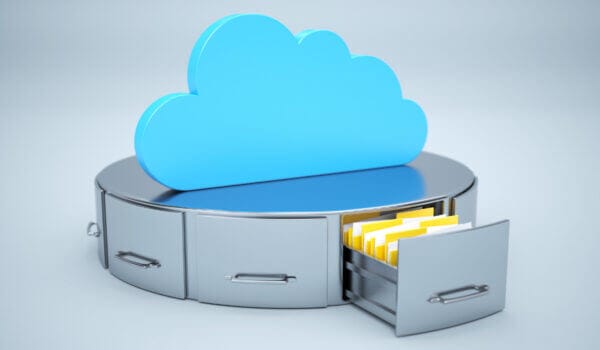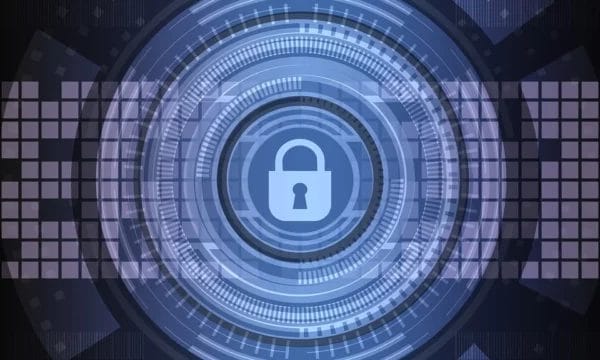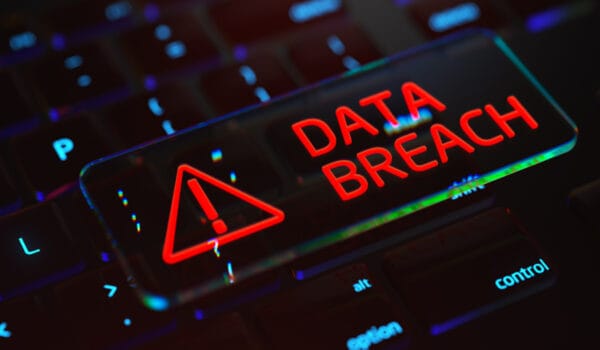7 Effective Measures To Stop Data Theft At Your Company
Written By:

Rob Stevenson
Founder

As a business owner, you know cyber security is essential. Protecting your customer data is fundamental to sound business practices and establishing a culture of client-company trust in any industry, from healthcare to finance, insurance to law firms.
Data security is also legally required by GDPR for businesses in all industries that collect, store, or share users’ personal data. If your company doesn’t meet the GDPR standard of data protection, you could incur hefty fines from regulating bodies.
There’s no doubt that minimising cyber threats is vital to your company’s reputation, both with clients and investors. Protecting sensitive data means stopping cyber attacks before they occur, and the seven tips below will help bolster your cyber security and keep your data safe from hackers.
When does data theft occur?
Data theft occurs when hackers exploit a crack in your company’s cyber security to gain access to your operating systems or sensitive data. Hackers can sell your sensitive information online, including employee data, customer data, or corporate data.
Hackers are relentless and inventive, constantly searching for poorly written software applications or unprotected wi-fi connections that might allow them to penetrate your sensitive information. A common tactic is to target user access permissions with phishing schemes that trick your employees into sharing their corporate passwords.
Cyber attacks strike without warning, allowing hackers to gain access and achieve complete theft of data before you know your operating systems have been targeted. It can take weeks to claw back the lost data and years to restore your corporate reputation and customer trust.
7 cyber security measures that work
A proactive approach to cyber security helps you stop data breaches before they occur. Each of the measures below is a solid security tactic that protects your data and minimises the risk of a data breach.
1. Data Encryption
One of the most vigorous cyber security measures you can use is data encryption. This means your data is encrypted – jumbled beyond a human’s ability to read or understand it – before it is backed up.
If someone does gain access to your system and steal corporate data, the data they receive will be illegible without the encryption key. That way, hackers cannot sell the data they steal or use it for blackmail, identity theft, or other underhanded purposes.
2. Multi-Factor Authentication (MFA)
Multi-factor authentication, or MFA, should be implemented across all your data storage accounts. MFA requires users to authenticate their data access with a second layer of security in addition to entering a password.
MFA may include approving a desktop login via a phone or other device or entering a code sent via SMS to an authorised mobile phone number. Good multi-factor authentication practices also include limiting the number of mobile devices from which employees can submit MFA approval and decommissioning those devices by removing their access to sensitive data when appropriate.
3. Off-Site Backup
Keep your backed-up data in a different physical location from your primary data, off-site and far from your office location. If thieves were to break into your office and steal your backup servers, they would have unlimited access to your data. With your servers sitting safely in their building, hackers would have ample time to break your encryption with brute force or other decryption methods.
Storing your backed-up data at a different location is also essential in a fire or other natural disaster. A fire at your office may destroy your physical office tools and equipment, but your data will still be safe if your backup servers are kept off-site.
In addition, it should not be possible for a backup to be deleted manually. Even if it can be, there needs to be a “backup recycle bin” in place to avoid criminals from deleting backup data.
4. Regular Monitoring and Auditing
Keep a close eye on your data, and regularly audit your access logs to see who accesses your data and how they use it. Hackers won’t publicise their data theft, and if you’re not regularly monitoring data access and downloads, you might not notice that a cyber attack has occurred.
By closely monitoring your backup systems regularly, you’ll discover any unusual activity or unauthorised access that could be a hallmark of a cyber attack.
5. Access Control and Permissions
Limiting the number of people who have access to your data is a sound cyber security measure. Data access and management should be kept to a minimum number of people, and those individuals should provide regular audits of the data they accessed, who they shared it with, how the data was used, and whether that data was deleted in temporary folders when its task was complete.
Limiting data access to authorised personnel only helps reduce the risk of data theft. Regularly reminding authorised personnel of data safety protocols will also help minimise the likelihood of a data breach.
6. Network Segmentation
Isolating your backup systems makes it harder for hackers to steal data. This entails dividing your computer network into smaller networks (called subnets). Each subnet has its own encryption, encryption keys, and communication rules.
Network segmentation makes data theft more difficult, even if a hacker does gain access to your system. In a cyber attack, hackers hope to move freely throughout your computer network by gaining access to a smaller, less protected part of your system. Data theft is limited if your data is segmented and each subnet is locked down.
7. Backup Encryption Keys Management
The encryption keys, passwords, and codes for accessing your data should be treated like nuclear bomb codes. They should be accessible to a very small, very select number of your employees, and they should be locked down with encryption keys and codes of their own.
Use hardware security modules or other methods to protect your keys from cyber attacks, and share them with as few people as possible.
Leave the cyber attack defences to the experts
Guarding against data theft is a constant battle. Hackers are relentless, building systems that work 24/7 to launch cyber attacks and crack your company’s sensitive data. To safeguard your corporate or client information, you need more than basic antivirus software.
With BackupVault, your backup data is protected with the latest tools and tactics. We keep an eye on the evolution of cyber attacks so we can continually shift our defensive strategies to respond to data theft trends and techniques. You can rest assured your data is safe and your reputation secured.


